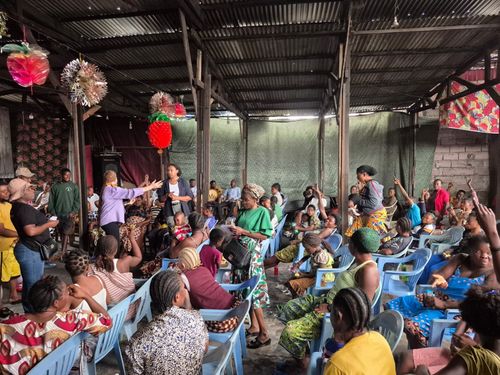Evaluating the public health impacts of attacks on health in Syria

Project overview
This study sought to understand the nature and severity of impacts of attacks on medical facilities and personnel in Syria.
Project solution
This project offers [specific solution or intervention] to tackle [challenge]. By implementing [strategies, tools, or innovations], the project aims to achieve [desired outcomes]. The approach is designed to [specific actions or methods] to bring about meaningful change in [community, region, or issue area].
Expected outcomes
This project aims to achieve [specific outcomes], such as [measurable results, improvements, or changes]. The expected impact includes [benefits to the target community, advancements in research or innovation, or long-term effects]. By the end of the project, we anticipate [specific changes or milestones] that will contribute to [broader goals or objectives].
Principal Investigator: Kelli O’Laughlin, MD, MPH (University of Washington)
Research Snapshot: Reaching refugees during the COVID-19 pandemic
Exploring innovative approaches to collecting COVID-19 symptom and exposure data and sharing public health information with displaced populations in remote locations.
[.cta_link]View Snapshot[.cta_link]
What did the study set out to achieve?
The purpose of this research, and of the Dial-COVID interactive voice response (IVR) telephone surveillance and mitigation tool, was to help provide data to health-implementing partners and to the Ugandan Ministry of Health regarding clusters of people with symptoms consistent with COVID-19 disease. It also aimed to help link individuals to information and services.
The “Dial-COVID” telephone tool enabled collection and dissemination of COVID-19 information among refugee populations in Uganda. Interactive Voice Response (IVR) surveys with pre-recorded messages in nine languages overcame language and literacy barriers, did not require smartphone or internet access, and eliminated the need for in-person interaction. Its effectiveness at reaching previously hard-to-reach groups and adaptability may make IVR an appealing method for dynamic public health emergencies or outbreaks that require a rapid response.
Dial-COVID was advertised in refugee settlements across Uganda for participants to call into toll-free. Participants received an IVR survey screening for COVID-19 symptoms/exposures and public health messages. A subset of participants were invited for COVID-19 testing, longitudinal surveys and qualitative interviews.
What were the key findings?
Dial-COVID showed high acceptability/uptake. During 15,436 calls, participants including a high proportion of refugees and people with limited education, interacted with the platform in all nine languages.
- Severe muscle pain and unusual fatigue were associated with a positive COVID-19 test after controlling for demographic characteristics. Heterogeneity of symptoms between COVID-19 variants challenged the development of a predictive algorithm based on the symptom survey.
- Only ~60% of surveyed call-in participants were willing to accept a free COVID-19 vaccine with acceptance decreasing over time among participants <; 35 years old.
- Participants were willing to protect themselves and their families from contracting COVID-19, but resource scarcity, high housing density and necessity to leave the home to attend to survival needs influenced adoption of recommended prevention strategies.
- The COVID-19 pandemic and related policies negatively impacted income generation, food security, and social interactions in refugee settlements. Incidents of child marriage and teenage pregnancies were reported following school closures.
What does this mean for policymakers and practitioners?
- IVR platforms can be used to rapidly collect and disseminate information in many languages and in difficult to reach places. The Dial-COVID tool effectively reaches refugees and groups with limited education that may be excluded when using traditional dissemination methods.
- The limited infrastructure required and adaptability make IVR an appealing method for dynamic public health emergencies that require a rapid response. As the number of languages for which translation and recording is required increases, this flexibility decreases.
- The Dial-COVID tool, or similar approaches, hold potential to be deployed for other applications such as routine surveillance as well as during future outbreaks of other transmissible diseases.
Project delivery & updates
Stay up to date with the latest developments from this project. Here, you will find details on what has been delivered, resources created, and regular updates as the project progresses. Access key documents, reports, and other materials to see how the project is making an impact.
Resources
Journal article
LEARN MOREJournal article
LEARN MORE






